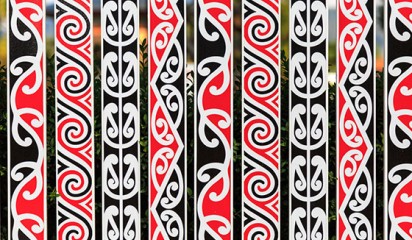On 29 August 2019, Māori Development Minister Hon Nanaia Mahuta announced that a whole-of-government approach, called Te Pae Tawhiti, is being developed to address the issues raised by the WAI 262 claim and the Waitangi Tribunal report, Ko Aotearoa Tēnei.
It is timely that this announcement was made the week before Te Wiki o te Reo Māori (Māori Language Week).
In this article, we briefly review the claim and the government’s proposal.
History
Māori were increasingly concerned about the loss of native plants and animals, the destruction of ecosystems, the continuing erosion of mātauranga māori (traditional Māori knowledge), and the continuing creation and amendment by the government of intellectual property (IP) legislation that failed to recognise Māori IP rights.
In 1991, the WAI 262 claim was lodged by six claimants on behalf of themselves and their iwi: Haana Murray (Ngāti Kurī), Hema Nui a Tawhaki Witana (Te Rarawa), Te Witi McMath (Ngāti Wai), Tama Poata (Ngāti Porou), Kataraina Rimene (Ngāti Kahungunu), and John Hippolite (Ngāti Koata).
The claim concerned who controls and owns traditional Māori knowledge, arts and cultural works. It also concerns the role of kaitiaki and their ability to protect taonga. Unlike many other claims submitted at the time, the claim was contemporary in nature and raised concerns for not just iwi, but also hāpū, whānau and Māori culture and identity.
The claim asserted the Crown breached the Treaty of Waitangi, because the Crown:
- failed to actively protect the exercise of tino rangitiratanga and kaitiakitanga by the claimants over indigenous flora and fauna, and other taonga (treasure), and also over mātauranga Māori (Māori traditional knowledge)
- failed to protect the taonga itself
- usurped tino rangatiratanga and kaitiakitanga of Māori in respect of flora and fauna and other taonga through the development of policy and enactment of legislation
- agreed to various international agreements and obligations that affect indigenous flora and fauna and IP rights and rights to other taonga.
The claimants also asked that one of the remedies include a framework based on tikanga Māori (or Māori customary values) that recognises Māori rights to exercise tino rangatiratanga and kaitiakitanga over indigenous flora and fauna, other taonga, and mātauranga Māori.
The Waitangi Tribunal's report
In 2011, the Waitangi Tribunal released its report Ko Aotearoa Tēnei. The Waitangi Tribunal made a number of recommendations to the Crown, including amendments to laws covering IP, Māori language, resource management, cultural artefacts, environmental protections, and more.
The Crown's response
To date, the Crown has never formally issued a response to the claim or responded to the recommendations of the Waitangi Tribunal.
In 2018, the Minister for Māori Development (‘Minister’) released a s8l report, which included a significant piece on WAI 262, suggesting that more work on the response to WAI 262 was in progress.
A s8l report is provided by the Minister for Māori Development to the House of Representatives at the end of each year. A s8l report provides the House of Representatives with an update on current Treaty negotiations and settlements and an overview of whether the Crown has implemented any recommendations made by the Waitangi Tribunal about treaty issues.
On 29 August 2019, the Minister released ‘Te Pae Tawhiti’, a proposed approach to addressing the Waitangi Tribunal’s report. The Minister proposes a whole of government approach to addressing the issues raised, including the establishment of three ministerial work groups tasked with the following workstreams:
Kete 1: Taonga works me te Mātauranga Māori
Kete 2: Taonga Species me te Mātauranga Māori
Kete 3: Kawenata Aorere / Kaupapa Aorere
The workstreams group together chapters within the WAI 262 report and identify government reviews underway and currently planned that fall within each work programme, including the review of the Copyright Act, the review of the Plant Variety Rights Act, and a review of the Haka Ka Mate Attribution Act.
The scope of the work programme is far-reaching, extending to almost every government department.
The Minister also proposes to establish a ministerial oversight group to oversee the government’s high-level response across WAI 262 and to assist ministers to co-ordinate within and across the three ministerial work groups referred to above.
The proposal anticipates the Crown will need to engage with Māori once the structure is established, but fails to identify how the engagement process might happen. For example, it may be appropriate to establish a Māori kahui to sit alongside the ministerial oversight group and/or each of the ministerial work groups.
Next steps
The Minister has presented this proposal to the whānau of the original claimants and at the Iwi Chairs Forum. The Minister is now seeking feedback from Māori on this proposal.
Consultation is expected to be completed in October, and the Minister intends to report back on the consultation to Cabinet in November with final recommendations.
Given the breadth of issues to be addressed, it is important that Māori engage in not only the consultation process, but also the planned work programme. The ongoing coverage of this work programme is extensive, and Māori need to ensure a Māori view is considered at every step, stage or review.
You can share your views on this proposal by sending an email to wai262@tpk.govt.nz.
Conclusion
In Canada, indigenous elders developed a concept called ‘two-eyed seeing’ which Priscilla Wehi (Māori Researcher at Manaaki Whenua Land) recently referred to as:
‘A good analogy of how we could see the contribution of both modern science and mātauranga. Imagine how you see the world – one eye is how you see the world through science, the other is an indigenous way of seeing. For any given problem, your eyes don’t have to be the same strength, but by using both eyes you have a much greater field of view and understanding that you can bring to the problems you are trying to solve’.
Māori have waited a long time for these issues to be considered and addressed by the Crown. For now, we must continue to monitor any developments in this space, as we know, to see clearly, we need to use both eyes.


